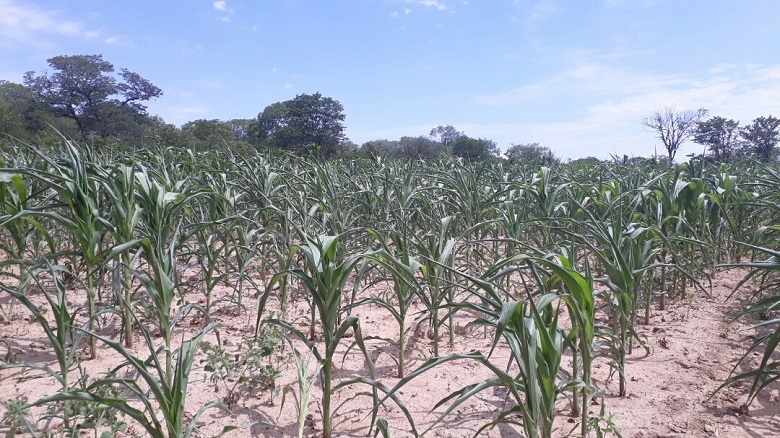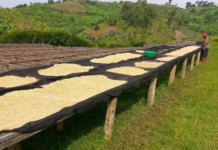Nqobile Bhebhe ,Bulawayo
THOUSANDS of farmers in most parts of Zimbabwe are sweating and in panic mode over the prolonged dry spell as crops are now showing signs of moisture stress.
The country is still too dependent on rain-fed agriculture which is practised by the bulk of the small scale farmers who are the backbone of the country’s food growers.
The dry spell currently experienced has unsettled farmers raising fears of poor farming season, which would put a dent on the Government’s sponsored Command Agriculture programme.
Under the programme, government distributed free inputs to smallholder farmers. Each farmer received seed and fertilizer for 0.4 ha of maize.
With a bit of help from favourable weather conditions, the country experienced a good 2017/18 marketing year.
The Southern African country has been a net importer of maize for the past 15 years and thanks to the good harvest season, the country won’t have to import maize in the 2017/2018 marketing year.
However, the state of unease among farmers has triggered the Meteorological Services Department (MSD) to issue a statement clarifying the dry spell.
According to the meteorological department, it forecast rainfall in coming weeks averaging 30 mm in some parts
However, the rainfall would be ”localised” and not widespread.
“Localised heavier falls (in excess of 30 mm) may occur along the central watershed as well as the eastern highlands of Manicaland Province. These thunderstorms may be violent with lightning, damaging winds and hail.” reads part of the statement.
According to the department, some parts of the country are expected to received between 16 mm and 20 mm in the next few days.
It listed Mashonaland East, Mashonaland West, Matabeleland South, Masvingo, Midlands and Manicaland are provinces to receive 16 mm to 20 mm in the next few days.
The meteorological department urged farmers with irrigation facilities to make good use of them.
“‘Irrigation is a must for those with infrastructure and available water sources. Farmers should follow the MSD short and medium range forecasts that give more detail on the forecast for the next 10 days and are useful for day-to-day activities.” the state run Herald reported quoted the MSD statement.
“Different areas have been affected differently by the erratic rains, hence communal farmers could engage their nearest extension officers for more appropriate advice relevant to their area. Rainfall activity is anticipated between 10 to 25 January 2018, however, there are less chances of weekly accumulated rainfall that exceeds 70 mm for the period 10 to 18 January.”
In March last year, Environment, Water and Climate Minister Oppah Muchinguri-Kashiri announced that Government was planning to construct weirs in all 10 provinces as part of its Command Rain Water Harvesting Programme aimed at harnessing water from floods and excessive rains.
According to, Muchinguri-Kashiri, there was a huge potential in the untapped wastewater resource to improve the country’s water security and will go a long way in mitigating the effects of drought and also ensure farmers produce cash crops to boost their incomes.
Under the programme, small dams and weirs will be constructed to allow collection of water during the rainy season for use during the dry seasons.
The programme also involves repairing of small community dams, rooftop and rock top rainwater harvesting.









